ADS
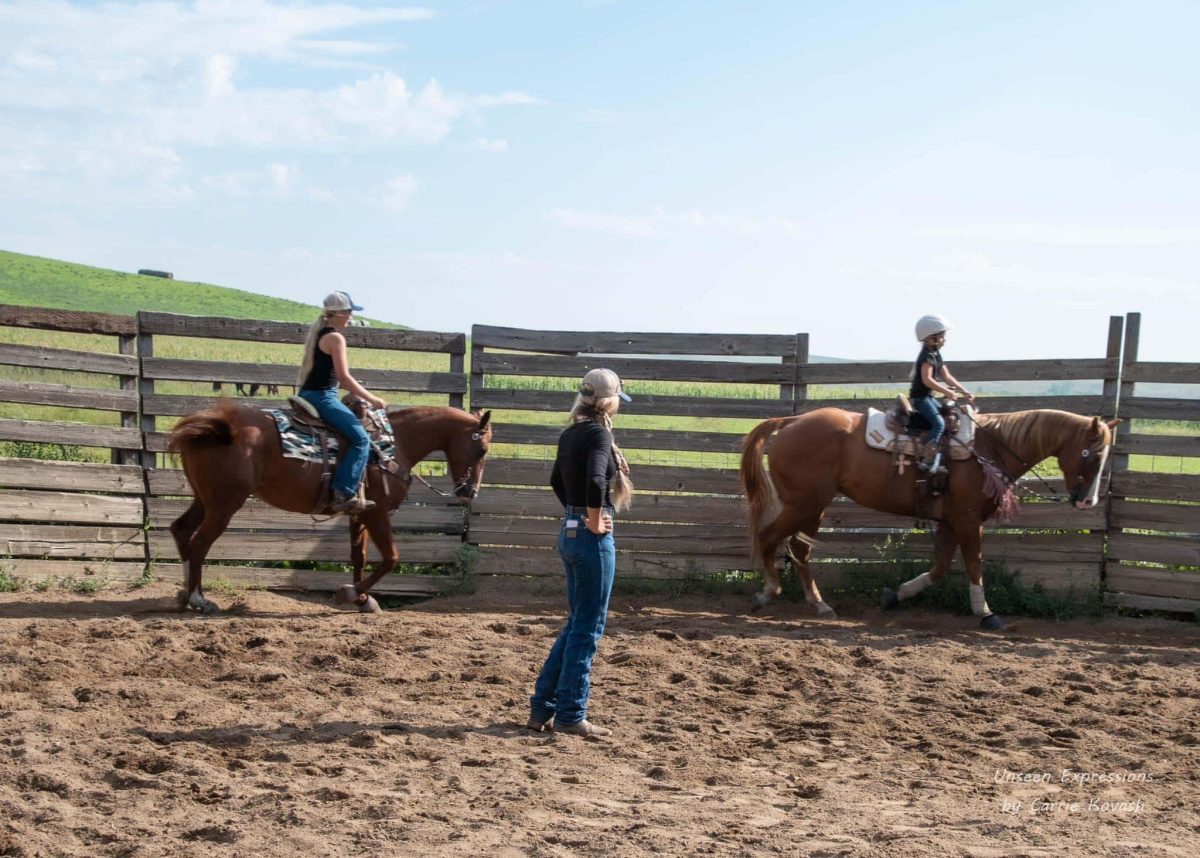
[Photo: submitted by Elsabe Hausauer]
Every once in a while, I hear the relationship between humans and horses being called “prey & predator relationship.” In other words, the relationship between humans and horses is dominated by the relationship between a prey animal (horse) and a predator (human).
However, to me this is not always completely true. We have a lot of dogs (predators) and my horses will chase the dogs, but you bring something new like an alpaca or sheep who is also a prey animal, they will be petrified at first.
Which brings me to the fact that behavior of a horse towards a human is not shaped by the fact that we eat meat. Just because we have the physical characteristics of a predatory does not explain why our horses may be scared of us. Our relationship with them is based on how we represent ourselves to the horse, as well as their past traumas with human interactions. Our energy, lack of clarity, and our intent are what can make them alarmed.
Horses can experience trauma and events that make them endure physical and mental pain making them feel like their lives are being threatened. They can form negative associations with those events, situations, or environments, and as a result they become anxious and reactive.
[Photo: submitted by Elsabe Hausauer]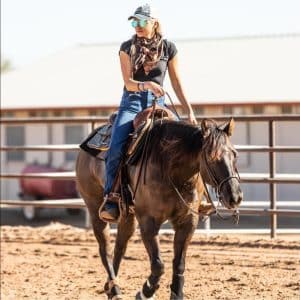
When you eliminate trauma, you will also find that genetic predisposition can play a big role in how they act… in other words, some horses can be more sensitive to feeling emotionally uncomfortable than others, which may be an inherited.
They can also act a certain way based on how they grew up and can learn emotional responses from other horses. The herd acts as a filter to things the horse experiences in its environment as a young horse. For example, I have a gelding, which some of you guys know, named Maui, who was an orphan. Maui has always been petrified of tractors. So if I’m feeding horses with the tractor in a pen where Maui is, he will get the whole herd riled up, and even after a couple of feedings and removing Maui from the herd, they would still get riled up and run due to Maui’s reaction.
So I now know when I have young horses learning new life experiences, I don’t put Maui in that pen. Over the years, I have learned to always put my young colts with the wise old geldings, so that they learn the quietness of feeding and the environment. I want my colts to learn from the older horses of the herd on how to handle new things. The herd offers protection and impacts their learning on how to go through life and environmental changes. It is different than the environment we raise our kids in or allow their friends to be.
[Photo: submitted by Elsabe Hausauer]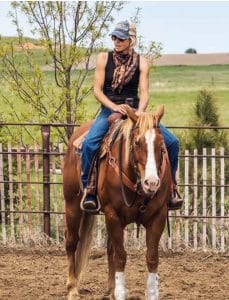
Training a horse means to work with each horse’s natural disposition and enhance their ability to learn. We need to work towards helping them emotionally process and adapt to perform in different environments. Ultimately, we need the horse to connect with us so that we take the place of the herd and become the filter that helps them process their emotions and navigate their environments with confidence.
Horses are so good for people in so many ways. Especially with trauma, PTSD, anxiety, depression, physical disabilities, etc. I am always amazed when I ask people at my clinics what their “why” was. “Why horses?” Many of them instantly shows tears. The majority of them found something in the horse that helped them through difficult times in their life. For some, the horse helped them grow closer to God due to the profound messages the horse can share with us through body language. For some others, the horse evokes memories of riding with a family member who has passed, or the horse helps them to be more patient, a better friend, better mother, father, student, co-worker, nurse, lawyer, teacher, etc.
[Photo: submitted by Elsabe Hausauer]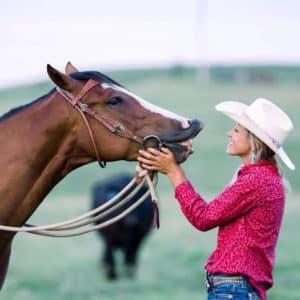
The horse offers so many unique qualities to everyone. I thank the good Lord every day for this magnificent animal who gives us so much in life. Their trust, love, respect, boundaries, and loyalty are based by actions not words.
If you’re reading this article on the Dakota Horse Magazine’s facebook page, please post a picture of you and your favorite equine partner doing what you love and your WHY!!!
Verse for the day: Trust in the Lord with all your heart and lean not on your own understanding; in all your ways submit to. Him, and He will make your paths straight. Proverbs 3:5-6
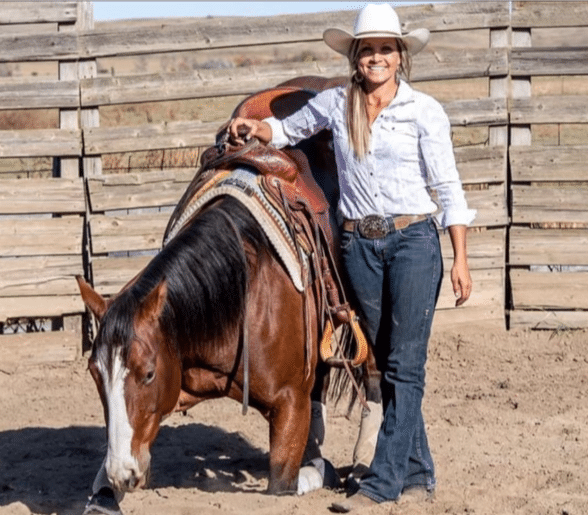
Elsabe Hausauer is a veteran in the horse training industry. She is the owner of MBR Performance Horses, LLC, clinician, and as she puts it, “forever student of the horse.” Horsewoman, rancher, wife, and mother by way of South Africa, she hangs her hat in Halliday, ND, encouraging the relationship between people and horses through teaching and advocating horsemanship skills to make each ride a better experience.
